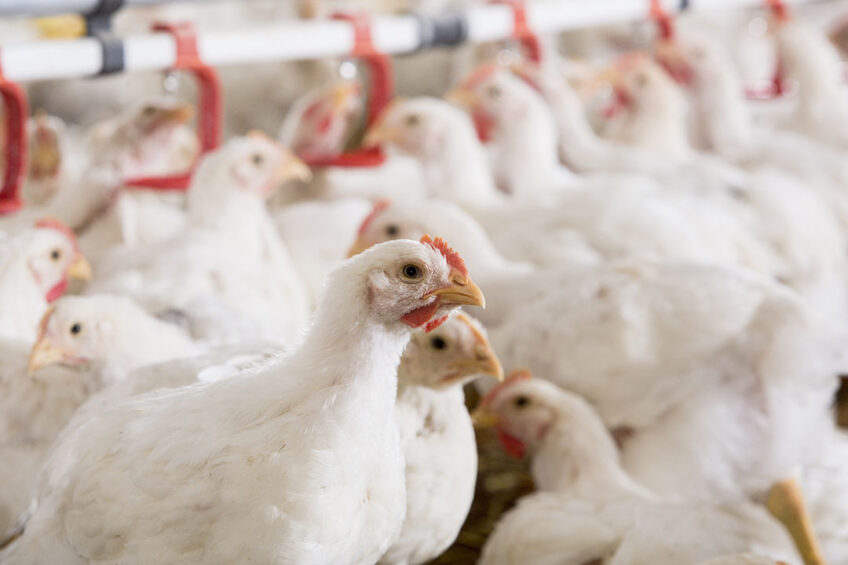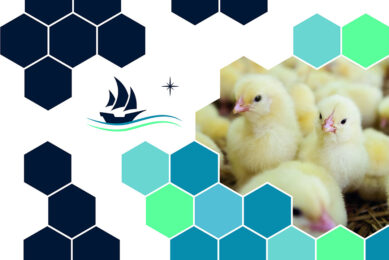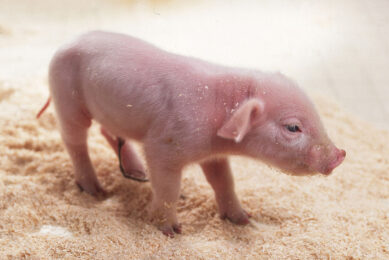One step at a time: The best approach to tackle AMR

Antimicrobial resistance is one of the most serious issues our world faces. As an industry, we can and must address it. The good news? Practical steps can help us make a difference together. Nutreco Sustainability Director José Villalón explains how.
Since the main cause of antimicrobial resistance (AMR) is the inappropriate use of antibiotics in humans and animals, our industry has an important role to play across the protein supply chain. As an industry, we have undoubtedly made progress already, but it still varies from country to country.
In the Netherlands, legislative action has helped. Since more restrictive laws were passed over a decade ago, antibiotic usage in livestock has dropped by over 71%. That shows how government intervention through regulations can help encourage us to drive best practices. We’ve seen similar results in Norway’s aquaculture industry, where legislative reform has led to almost insignificant use of antibiotics in salmon farming and stimulated the development of innovative vaccines to replace antibiotics. In addition to legislation, there are other drivers to bring about change, such as market demand and the shifting needs of consumers, retailers, and animal feed producers. The US market has leapfrogged ahead of regulatory frameworks to prepare for an expected rise in consumer demand, with major producers selling meat raised without the use of absolutely any antibiotics.
Eradicating antibiotics considered critically important for human health is an approach we fully support and enable at Nutreco. Yet, we also believe that if an animal gets sick, it has an animal welfare right to be treated; the responsible use of antibiotics, always with a diagnosis and under the supervision of an animal health care professional, is sometimes necessary.
Driven by a sustainability focus
As part of playing our role, we are committed to ensuring animal producers are equipped to succeed in growing healthy animals – it’s not only our business, but it helps us achieve our purpose of Feeding the Future and our sustainability targets. By providing optimal nutrition and good farm management advice, we support animal producers in reducing the need for antibiotics, which is critical to tackling the challenge of AMR.
Because we believe change related to AMR starts with us.
Nutreco has committed to 4 ambitious goals by 2025:
Absolutely no use of antibiotics listed by the WHO as ”Critically Important for Human Health” in our products and services, even as last resort.
No preventive use of antibiotics in our products and services.
No use of antibiotics for growth promotion in our offering.
Engage with governments to promote appropriate regulatory reforms.
Supporting each other, one step at a time
Today, our industry faces increasingly relentless challenges – such as unpredictable weather, drought, and animal diseases – while farm-gate food prices do not always cover the true cost of implementing sound production methods. Using antibiotics can appear to be a quick fix while, in fact, adjusting farming practices, hygiene and biosecurity protocols yields more in the long run.
A significant percentage of antibiotic use could be reduced through best farming practices focused on biosecurity, air ventilation and water quality and reducing stress-induced activities. Bacteria are opportunistic – a stressed, and unhappy animal has fewer defences, uses more metabolic energy to offset stress and is much more vulnerable to infection.
The bacteria are already there, in the environment and the gut, but if the animal is strong, it has good defences to withstand them. So, in addition to best farm practices, the need for antibiotics can be mitigated with nutritional solutions – gut health and feed additives that help animals withstand infection or reduce bacteria loads. The combination of feed, farm and health management has shown really good results.
Our learnings in this area are incorporated into Trouw Nutrition’s integrated Antibiotic Reduction Program. It makes the switch to responsible use of antibiotics easy and manageable for swine and poultry producers through a step-by-step approach. We provide the expertise, products, services, and models to help producers focus their resources on the areas that matter most across the feed, farm, and health aspects of their operations. By assessing each producer’s unique situation, we can help develop a plan to gradually transition their business to sustainable practices and reduce the use of antibiotics in a way that benefits both animal health and profitability.
At one leading Spanish poultry integrator, this feed, farm, and health approach supported a 95% reduction in antibiotic use over six years, while also decreasing mortality by 36% and reducing first-week mortality by 27%. This also had financial benefits, reducing the spend on antibiotics by 97%. Other collaborations with players in Germany, the Middle East and Latin America have had equally successful results, also from a financial perspective – through a similar holistic approach.
Together with our team in Brazil, we are helping address the issue with key clients, analysing their production from A to Z, helping them put in place better farming practices and providing them with feed additives that enhance animals’ health and reduce the need for antibiotics in the first place.
Raising awareness amongst each other
While we can make an impact within our own sphere of influence, to move the needle, the challenge of AMR must be taken on by our whole industry.
We all have a role to play in raising awareness by talking to our partners, speaking at industry events, and showing by example that change is possible. And I encourage everyone to support changes in legislation to drive us in the right direction – when the legislation is there, industry will innovate and rise to the challenge.
My call to arms for the entire centre plate protein production industry is to tackle the issue of AMR head on and look for solutions together. Because they do exist! Precompetitive collaboration can be a huge stimulus for positive change – together we can greatly enhance our individual impact. This will be one of the major issues our children’s and grandchildren’s generations will deal with, and we need to be able to tell them we did our best to solve it. With a step-by-step, feed, farm, and health-focused approach, we know it’s possible for our industry to make strides in solving this very serious issue – and leave the world a better, safer, and healthier place than we found it!
References available on request.






